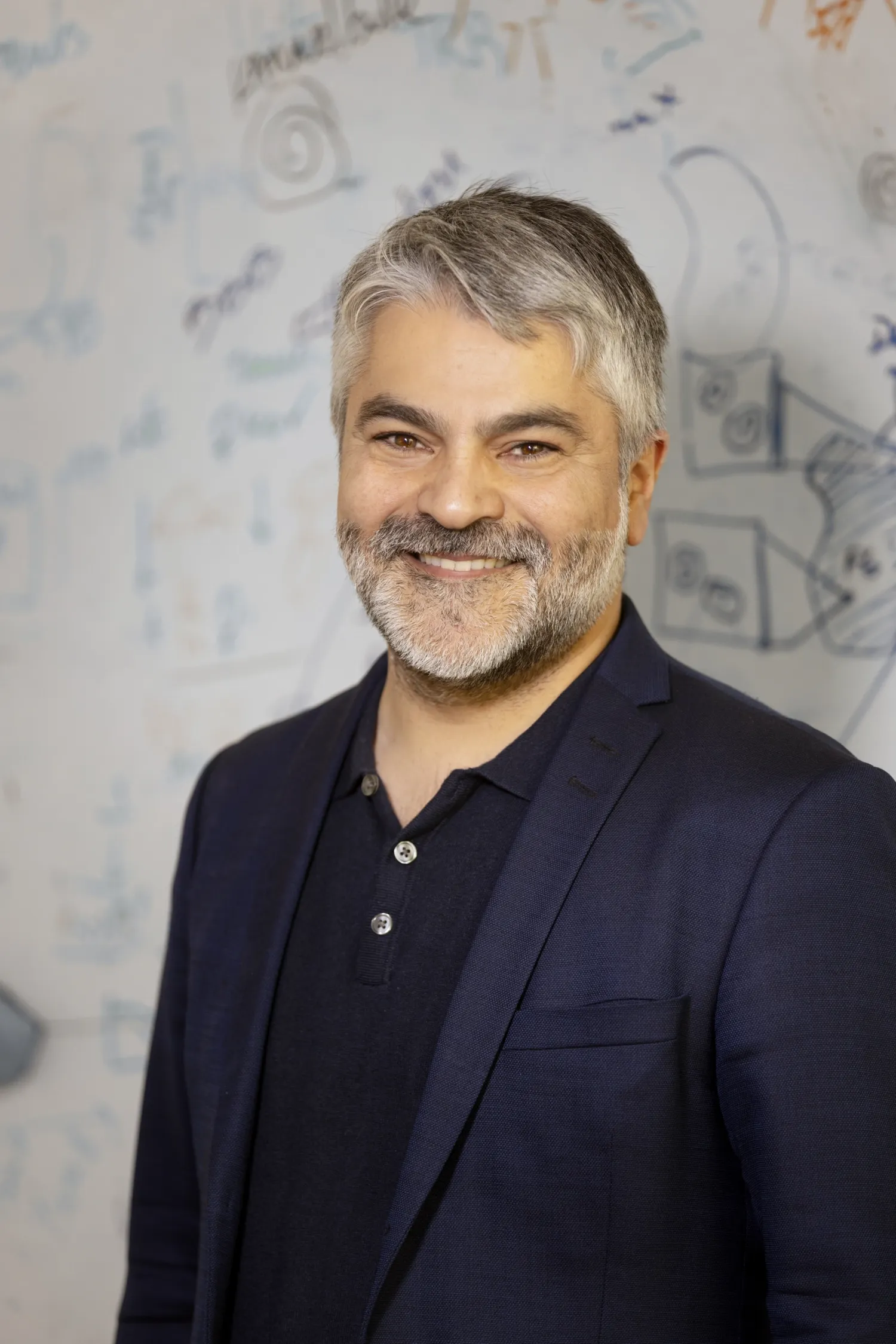Inflammatory bowel disease affects millions of people worldwide and currently lacks a cure. Eduardo Villablanca studies how inflammation starts and heals in the intestines, with the aim to find new treatment methods. Meet one of the new professors of Karolinska Institutet who will participate in this year's installation ceremony at Aula Medica on 9 October.
Text: Karin Tideström, for KI's installation ceremony booklet 2025
What are you researching?
"Our research focuses on understanding how the gut maintains balance with its environment and what happens when this balance breaks down, leading to diseases like inflammatory bowel disease (IBD) and colorectal cancer (CRC). We explore how immune and intestinal cells interact. By uncovering the mechanisms behind how inflammation starts and heals in the intestines we hope to aid the development of better treatments with fewer side effects. Our goal is to develop targeted therapies that can stop disease before it starts or help repair the gut after damage."

Why is this important?
"While significant progress has been made, we still don't fully understand what triggers chronic inflammation or drives its progression to cancer, and there is still no curative treatment. Many patients are given immunosuppressants but they are not always helpful. Suppressing the immune system also increases the risk of infection and cancer."
How are you going about this?
"We're using advanced technologies like single-cell analysis and spatial proteogenomic to study how cells interact in both human samples and animal models. Instead of focusing on individual cell types or signal pathways, we're looking at the bigger picture. Our goal is to decode the cellular circuits and molecular networks that maintain balance or drive inflammation."
What results have you seen and what's the next step?
"We've identified distinct molecular subtypes of IBD and found gene expression profiles that can predict treatment response. An important discovery is that the liver X receptor (LXR) can promote intestinal regeneration and suppress tumour growth. The next step is to take our results to clinical trials."
About Eduardo Villablanca
Professor of Gastrointestinal Immunology at the Department of Medicine in Solna
Eduardo Villablanca was born in 1978 in Victoria, a town in southern Chile. He moved to Santiago to study Molecular Biotechnology Engineering at the University of Chile and earned a PhD in Basic and Applied Immunology from the San Raffaele Institute in Milan, Italy, in 2007. He then completed his postdoctoral training in mucosal immunology and IBD at Harvard Medical School, USA. Ten years ago, he moved from Boston to Stockholm to establish his own lab at Karolinska Institutet. Eduardo Villablanca was appointed Professor at Karolinska Institutet on 1 January 2025.






